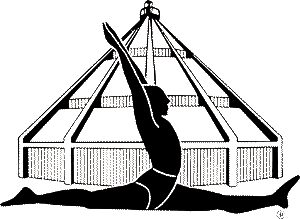Learning yoga at school can improve young people’s mental and emotional well-being.
We are committed to supporting our local schools by offering subsidised yoga classes for children, teenagers and staff.
![]()
How to set up yoga classes at your school
We work with local schools to introduce the benefits of yoga practice to staff and children at primary and secondary levels. If you are interested in setting up classes for students or teachers at your school, please get in touch with us at office@iyengaryogalondon.co.uk
Why yoga in schools now?
Teachers are facing challenges around child and adolescent mental health that extend beyond their traditional roles as educators. With rising rates of anxiety, depression, and behavioural issues among school-aged children, teachers are often expected to step into the role of mental health and well-being champions. This puts an extra strain on school staff who have to juggle these responsibilities alongside academic demands.
Iyengar yoga classes for children promote fitness and flexibility in a dynamic and engaging format that provides opportunities to build emotional regulation and mental resilience. Our approach is accessible to all regardless of physical ability or discipline level – ultimately yoga is about getting young people out of their heads, into their bodies and having fun!
![]()
On-site yoga classes for children and teenagers
We offer yoga classes for children and teenagers held on-site at local schools. To find out more about setting up classes at your school, email us at office@iyengaryogalondon.co.uk
On-site yoga classes for teachers and staff
We also offer yoga classes for teachers and staff. To find out more about setting up classes at your school, email us at office@iyengaryogalondon.co.uk
![]()
Research backs the benefits of yoga in schools
There is now significant research to suggest that yoga is a practical method to promote mental resilience and emotional intelligence in children.
“Yoga effectively ameliorates the symptoms and severity of issues such as anxiety, depression, attention problems, and impulsivity, while also enhancing academic performance and executive functioning. Furthermore, it enhances self-control, reduces perceived stress, and improves overall well-being.
The incorporation of yoga as an intervention presents a valuable opportunity to alleviate these symptoms, enabling children and adolescents to better navigate life’s challenges and, ultimately, enhance their overall health and quality of life.”
Yoga classes for children at our studio
As well as offering outreach classes in schools, we run term time Yoga Classes for Children aged 6-12 and Yoga Classes for Teenagers at our centre located five minutes from Maida Vale tube station.
Good to know
All Iyengar yoga teachers have a minimum of six years of yoga practice before qualifying to teach and are accredited by the UK Iyengar Yoga Association. Iyengar yoga teachers are all required to have insurance and DBS certification for teaching children. Find out more about Iyengar yoga and its benefits here.
Research on yoga in schools
![]()
Yoga for children and adolescents: A decade-long integrative review on feasibility and efficacy in school-based and psychiatric care interventions, Kerekes N, Söderström A, Holmberg C, Hedman Ahlström B. – Journal of Psychiatric Research, 2024
The effects of yoga on mental health in school-aged children: A Systematic Review and Narrative Synthesis of Randomised Control Trials, Khunti K, Boniface S, Norris E, De Oliveira CM, Nicola Shelton – Clinical Child Psychology and Psychiatry, 2023
Scoping review of yoga in schools: Mental health and cognitive outcomes in both neurotypical and neurodiverse youth populations, Hart, N, Fawkner, S, Niven, A & Booth, JN – Children, June, 2022
Does Yoga Improve Mental Health in Adolescence? A Systematic Review Exploring the Impact of Yoga Interventions Implemented Within Secondary Education, Gibbons, Julie; (2022) Doctoral thesis (D.Ed.Psy), University College London
Supporting positive behaviors through yoga: An exploratory study, Rashedi, R. N., Weakley, M., Malhi, A., Wajanakunakorn, M., & Sheldon, J. – The Journal of Positive Psychology 2019
“Each ones capacities are a function of his or her internal strength.”
B.K.S. Iyengar





